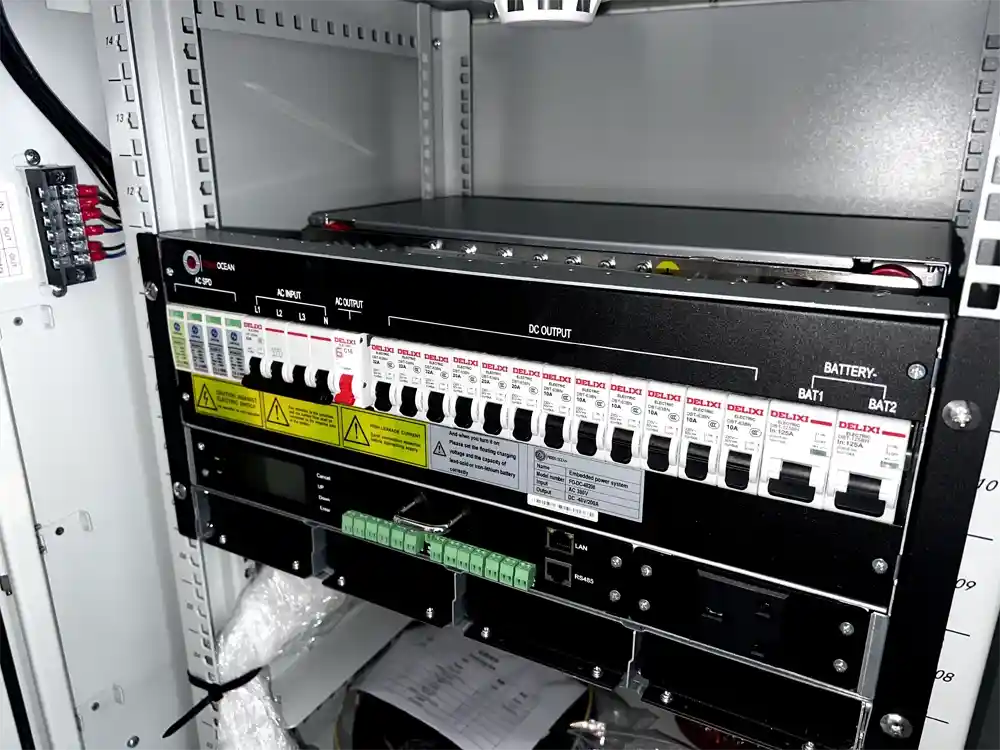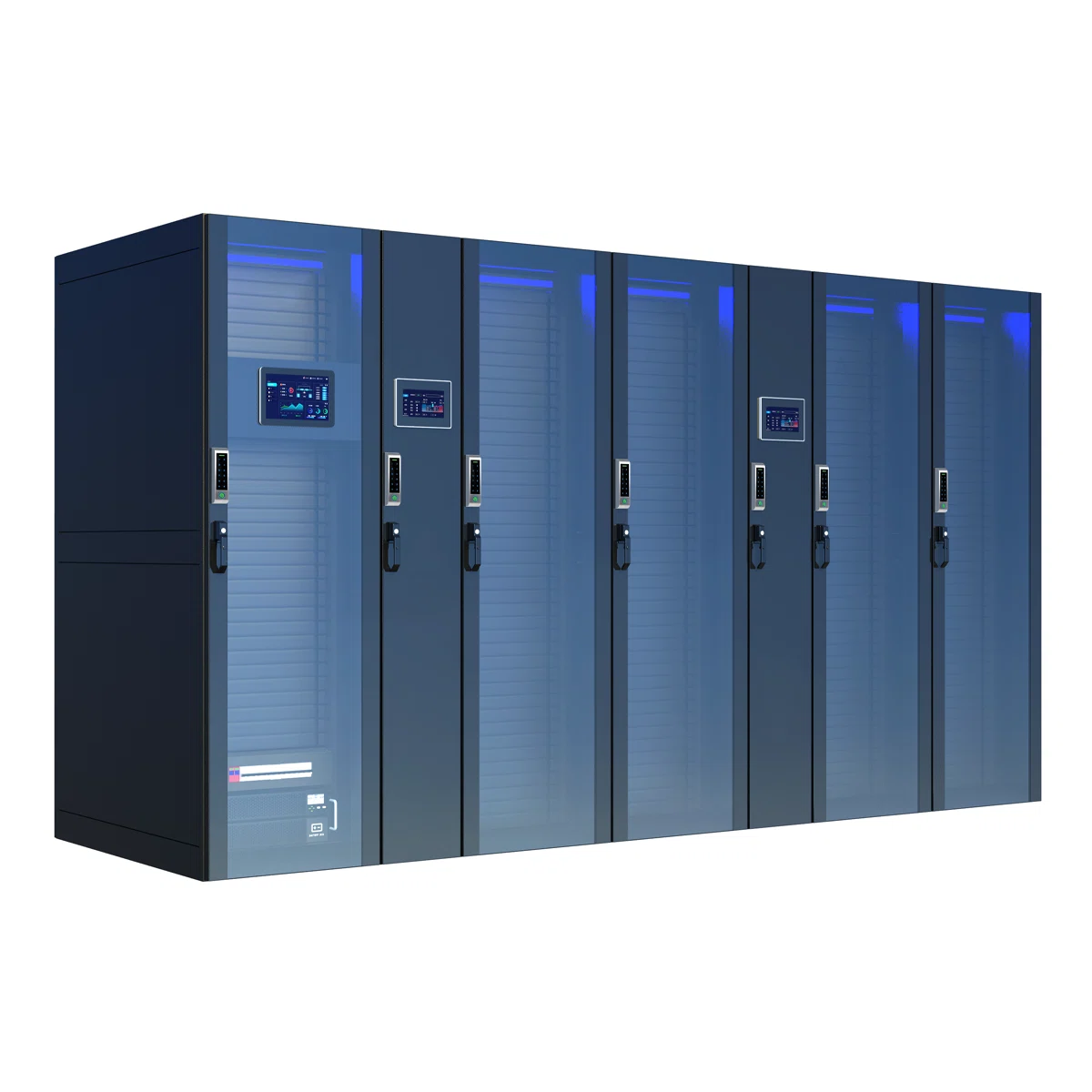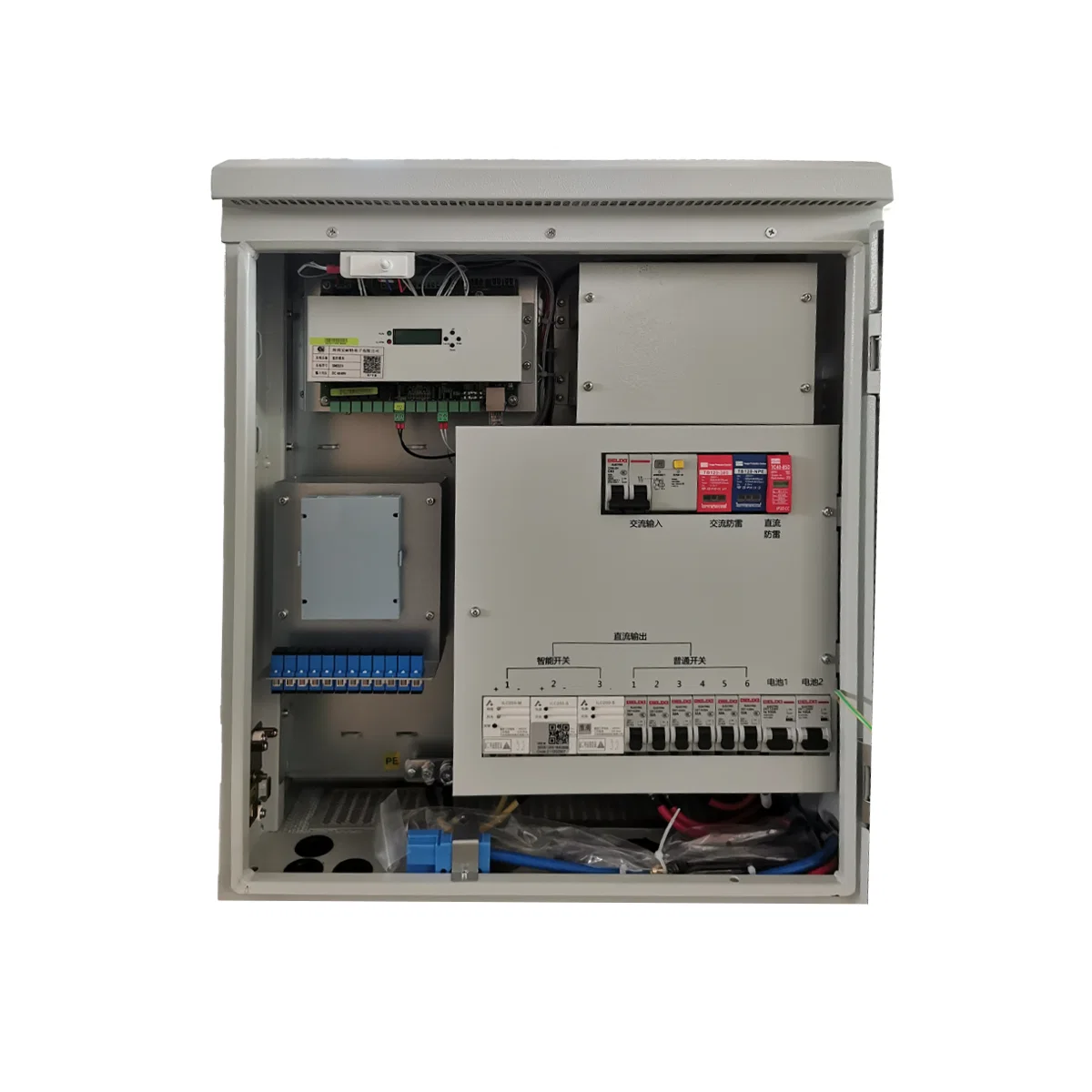Análise das vantagens da aplicação de fonte de alimentação CC na indústria de telecomunicações
Horário de lançamento: 07/05/2025
A aplicação de energia CC no setor de telecomunicações oferece inúmeras vantagens, principalmente no fornecimento de energia estável e confiável, na melhoria da eficiência energética e no suporte à segurança dos equipamentos.
Principais vantagens:
Alta eficiência de conversão de energia
Baixo consumo de energia: Sistemas de energia CC são mais eficientes em termos energéticos do que os sistemas de energia CA. Muitos dispositivos de telecomunicações, como estações rádio-base, roteadores e switches, são inerentemente projetados para funcionar com energia CC. Portanto, o uso de energia CC reduz a perda de energia.
Desperdício mínimo de energia: a energia CC fornece diretamente a energia necessária aos dispositivos, evitando perdas de conversão que podem ocorrer ao converter CA para CC.
Estabilidade e confiabilidade
Alta estabilidade: os sistemas de energia CC fornecem saídas de tensão mais estáveis, reduzindo o impacto das flutuações de energia nos equipamentos de telecomunicações, melhorando assim a confiabilidade e a estabilidade do dispositivo.
Forte antiinterferência: os sistemas de energia CC têm melhor desempenho antiinterferência, reduzindo efetivamente a interferência eletromagnética e o ruído, garantindo a operação normal dos equipamentos de telecomunicações.
Baixos custos de manutenção
Equipamento de conversão reduzido: como muitos dispositivos de telecomunicações são alimentados por CC, não há necessidade de CA adicional paraEquipamento de conversão DC. Isso não só reduz o investimento inicial como também diminui os custos de manutenção.
Sistema simplificado: a energia CC reduz a complexidade dos sistemas de energia, facilitando seu gerenciamento e manutenção. Para instalações de telecomunicações de grande porte, como estações rádio-base e data centers, o gerenciamento simplificado de energia pode aumentar a eficiência da manutenção.

Radiação eletromagnética reduzida
Baixa interferência eletromagnética: a energia CC produz menor radiação eletromagnética, o que reduz a interferência em equipamentos de telecomunicações, melhorando a qualidade do sinal e a confiabilidade da transmissão, especialmente em comunicações de alta frequência.
Economia Ambiental e Energética
Conservação de Energia e Redução de Emissões: Os sistemas de energia CC são mais eficientes em termos energéticos do que os sistemas de energia CA, o que significa que podem reduzir efetivamente o consumo de energia. Com o aumento do rigor das regulamentações ambientais, as vantagens da energia CC em termos de economia de energia e redução de emissões se alinham às metas de sustentabilidade corporativa.
Redução de emissões de gases nocivos: os sistemas de energia CC são mais eficientes na conversão de energia, produzindo menos calor e gases nocivos, o que ajuda a reduzir a carga de resfriamento em salas de servidores e diminui os custos operacionais gerais.
Atendendo às necessidades de equipamentos de telecomunicações
Requisitos de voltagem do equipamento correspondente: a maioria dos equipamentos de telecomunicações opera em alimentação CC de baixa tensão. O uso de energia CC atende diretamente aos requisitos de voltagem desses dispositivos, evitando conversões desnecessárias de voltagem.
Fornecimento de energia otimizado: Equipamentos de telecomunicações, como estações base, switches e roteadores, exigem energia estável e de alta qualidade. A energia CC pode atender precisamente a essas necessidades, evitando falhas de equipamentos ou paradas causadas por instabilidade de energia.
Capacidade de lidar com interrupções de energia
Integração com Fonte de Alimentação Ininterrupta (UPS): Sistemas de energia CC podem ser combinados com UPS para garantir a operação contínua e estável dos equipamentos de telecomunicações durante quedas de energia. A combinação de energia CC e UPS proporciona energia de reserva por mais tempo.
Facilitando o gerenciamento de energia distribuída
Flexibilidade no Fornecimento de Energia Local: Os sistemas de energia CC são mais flexíveis no fornecimento de energia para múltiplos dispositivos, tornando-os adequados para as necessidades de energia distribuída de estações rádio-base de telecomunicações. Comparada aos sistemas de energia CA tradicionais, a energia CC é mais conveniente para o gerenciamento de energia distribuída.
Melhorando o ambiente do data center
Geração de calor reduzida: os sistemas de energia CC têm maior eficiência de conversão e produzem menos calor, ajudando a reduzir a carga de resfriamento em salas de servidores e diminuindo a frequência de uso do ar condicionado, economizando assim em custos operacionais.
Os sistemas de energia CC não apenas fornecem energia eficiente, estável e confiável, como também reduzem a complexidade do sistema, os custos de manutenção e o consumo de energia, além de melhorar a estabilidade e a eficiência operacional dos equipamentos. Como resultado, cada vez mais empresas e operadoras de telecomunicações estão adotando Soluções de energia CC em data centers, estações base e outras instalações para atender às crescentes demandas de energia e equipamentos, ao mesmo tempo em que promove o desenvolvimento verde e sustentável.

